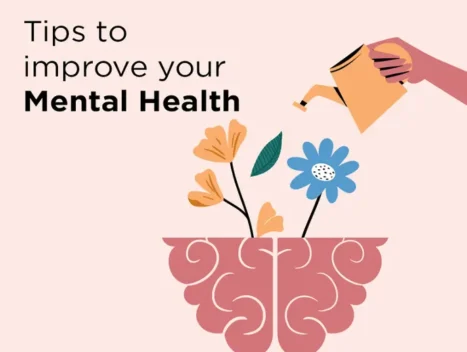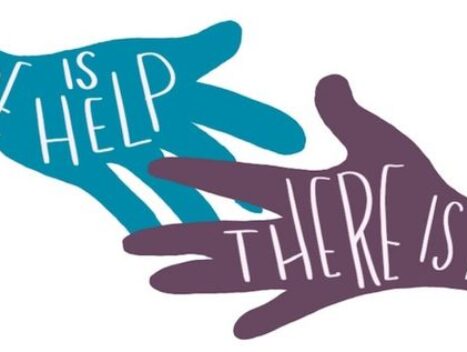COMMON QUERIES
What's The Difference Between a Psychologist, Psychiatrist, And Psychotherapist?
Although both psychologist and psychotherapist provide therapeutic interventions to help individuals, couples, or families address and manage emotional, psychological, and relational issues, but the major difference is that psychologists are trained and qualified to conduct psychological assessments and diagnoses, whereas psychotherapists primarily focus on providing talk therapy and do not typically conduct psychological testing. Meanwhile a psychiatrist can prescribe medications for treatment of severe symptoms/ conditions like schizophrenia, bipolar etc which can’t be done be either a phycologist or a psychotherapist.
How do I know if I need to see a Psychotherapist or Psychiatrist?
Both psychotherapist and a psychiatrist deal with mental health issues, but to decide whether to consult a psychologist or a psychiatrist depends upon the severity of your symptom So if you are facing issues regarding your mental health you can consult your primary care physician for guidance and consider starting with a therapist who might refer you to a psychiatrist depending upon your symptom.
How can I differentiate between everyday stress and a mental health issue?
Everyday stress is temporary, manageable, and tied to specific events, causing mild disruptions that improve with time. In contrast, mental health issues are chronic, severe, and significantly impair daily functioning, requiring professional help and ongoing treatment. Seek professional help if symptoms persist beyond a few weeks, impair daily life, cause intense distress, or lead to concerning behavioral changes.
How can medication help and what are the potential side effects?
Medication for mental disorders can help balance brain chemicals, alleviate symptoms, enhance the effectiveness of psychotherapy, and stabilize acute episodes. However, potential side effects include physical issues like nausea and weight gain, emotional and cognitive changes, long-term risks, and individual variability in response, requiring close monitoring by a healthcare provider.
Will I get addicted to the medications prescribed to me?
It is a myth that you will get addicted to medications prescribed for mental illnesses. Most medications, such as antidepressants and antipsychotics, are not addictive and are carefully prescribed and monitored by healthcare providers to ensure safe use. While certain medications, like some anti-anxiety drugs, may have a potential for dependency, your provider will manage your treatment to minimize any risks. Trust in your healthcare provider’s expertise and discuss any concerns you have to ensure the best outcome for your treatment.
How do I choose the right therapist for my needs?
Choosing a right therapist is a crucial step in your mental health journey, To choose the right therapist, identify your specific needs and research therapists’ credentials and specializations. Consider their therapeutic approach and personal style, and factor in practical considerations like location, availability, cost, and insurance. Gather recommendations, read reviews, and schedule an initial consultation to evaluate your comfort level and the therapist’s suitability. Continuously assess your progress and comfort to ensure a good match.
What can I expect during my first therapy session?
During your first therapy session, expect to complete initial paperwork and engage in a welcoming introduction with your therapist. You’ll discuss your reasons for seeking therapy, personal history, current symptoms, and undergo an initial mental health assessment. The therapist will explain their approach, set goals with you, and address any questions. Future appointments and payment details will also be arranged, and you’ll be encouraged to reflect on the session afterward.
How long does each therapy session last?
A therapeutic session usually last between 45 min to 60 mins, although some sessions may vary in length depending on the therapeutic approach and individual needs, but this is the standard duration for most sessions and other factors like the severity of the disorder, the persistency of the disorder.
How often should I attend therapy sessions?
The frequency of therapy sessions can vary based on individual needs, but most people attend therapy weekly, especially at the beginning of treatment. As progress is made, sessions might become bi-weekly or monthly. The specific frequency should be determined in collaboration with your therapist, tailored to your personal goals and situation.
Are all sessions confidential?
Therapy sessions are generally confidential, with therapists legally and ethically bound to keep discussions private. However, exceptions include situations where there’s a risk of harm to self or others, suspected abuse or neglect, court orders, insurance purposes, and supervision or training needs. These exceptions are outlined in the informed consent form you sign at the start of therapy.
Is it normal to feel worse initially after starting therapy?
Yes, it is normal to feel worse initially after starting therapy. Therapy often involves exploring difficult emotions and experiences, which can be challenging and uncomfortable at first. This initial discomfort is part of the process of working through and understanding these issues, and it usually leads to improvement over time as therapy progresses.
What are the different therapeutic approaches used by the psychotherapist to manage different mental heath disorders?
Psychotherapists use various therapeutic approaches to manage mental health disorders, these methods are tailored to the client’s specific needs and issues. For eg: CBT: Changes negative thought patterns and behaviors, Psychodynamic Therapy: Explores unconscious processes and past experiences, Humanistic Therapy: Focuses on personal growth and self-actualization, DBT: Combines CBT with mindfulness techniques, IPT: Improves interpersonal relationships, Family Therapy: Addresses family dynamics etc.
What is Cognitive behaviour therapy (CBT)?
Cognitive Behavioral Therapy (CBT) is a structured, goal-oriented psychotherapy that focuses on identifying and changing negative thought patterns and behaviors. It is typically short-term, present-focused, and involves active client participation with practical techniques like cognitive restructuring and behavioral activation. CBT effectively treats various mental health issues, including depression and anxiety.
Do you offer support groups or group therapy sessions?
Yes, we provide support groups and group therapy sessions. These services offer a supportive environment for individuals facing similar challenges to connect, share experiences, and offer mutual support. Group therapy sessions, facilitated by licensed therapists, focus on addressing specific mental health concerns through group discussion and therapeutic interventions. Participation in these sessions can complement individual therapy and provide additional avenues for growth and healing. Contact us or speak with your therapist for more information.
Is online therapy effective?
Yes, online therapy, also known as teletherapy or telehealth, is effective for many seeking mental health support. It overcomes barriers to access, offers convenience and privacy, maintains a strong therapeutic alliance, and has evidence-based efficacy across various mental health conditions. It’s cost-effective and often preferred by those with busy schedules or seeking discreet support. However, it may not be suitable for severe conditions or individuals facing technological challenges or privacy concerns.
How will i communicate with my therapist during online therapy?
During online therapy, you will communicate with your therapist primarily through secure video calls, phone calls, and text messaging on specialized teletherapy platforms. These methods ensure privacy and convenience, allowing you to have therapy sessions from the comfort of your own space. Email may also be used for sharing documents and scheduling.
How can I help a loved one who's struggling with their mental health?
Supporting a loved one with mental health struggles involves educating yourself, actively listening without judgment, offering practical support like helping with daily tasks and encouraging professional help. Additionally, creating a supportive environment, practicing self-care, and recognizing warning signs are crucial for consistent and effective support.
How do I know if my child needs to see a therapist?
Recognizing if your child needs therapy involves observing persistent changes in mood or behavior, struggles to cope with stress, changes in sleep or eating patterns, academic or behavioral issues at school, expressions of self-harm or suicidal thoughts, experiences of trauma or loss, social isolation, unexplained physical symptoms, or family stressors. Trust your parental instincts and seek professional guidance for a comprehensive evaluation if you notice concerning signs.
See Our Latest Blog
- Anushka Deshwal
- 0 Comments
Noticing The Signs Early : How parents can spot developmental delays at home
Noticing The Signs EarlyHow parents can spot developmental delays at home AWARENESS BEGINS AT HOME Role of Parental Awareness in managing Neuro-Developmental Disorders in Early years. Recently, I came across an insightful experience, that got me thinking how crucial it is for the parents to pay attention to their children at a young age and […]
- Disha Gera
- 0 Comments
Why is Mental Health important?
‘Mental health’ is an important part of everyone’s life and taking care of our mental health is a journey. There are ups and downs, but we can always take small steps to protect our mental health. Our mental health changes every day but we can prepare for life’s challenges by practicing certain skills for our […]
- Anushka Deshwal
- 0 Comments
Rising Risk Of Suicide In Adolescents
An act of causing one’s own life is called Suicide and having thoughts about one’s death is known as suicidal Ideation. When a teenager performs such an act of causing harm to their own life, it is called Teen Suicide. Over the past years, there has been a notable increase in suicide rates among adolescents. […]
- RAKSHANDA SIROHI
- 0 Comments
Unravelling the Intricacies of Mindfulness
In today’s bustling world filled with endless tasks and constant distractions, it’s easy to find ourselves overwhelmed by stress and anxiety. Amidst the chaos, we often seek solace and a sense of calmness. While many avenues promise relief, one practice stands out for its transformative potential: mindfulness. Mindfulness is more than just a trendy buzzword; […]
- RAKSHANDA SIROHI
- 0 Comments
The Power of Self Compassion
In our modern and hectic world, amidst the hustle and bustle of daily life, we often overlook a crucial element for our mental well-being: self-compassion. In this article, we’ll dive into the profound impact of self-compassion and examine how nurturing this quality can enrich your mental health and elevate your overall quality of life. Understanding […]





